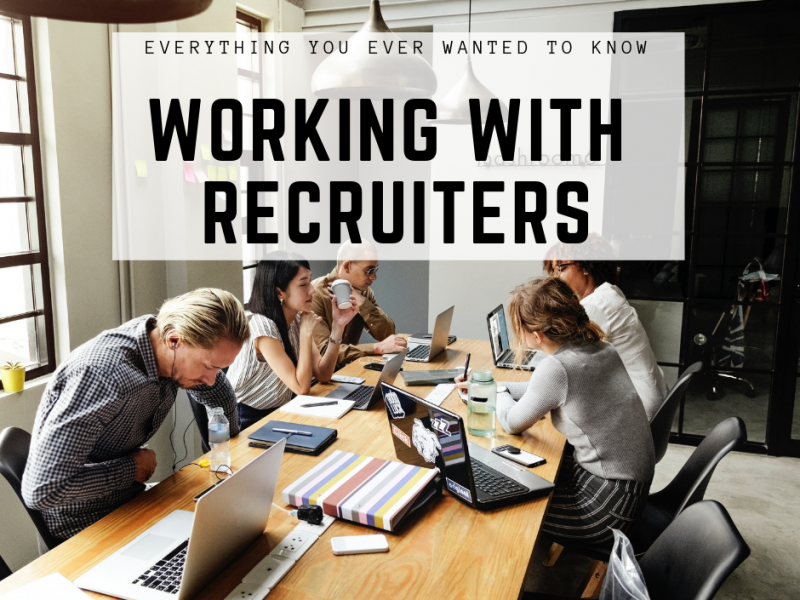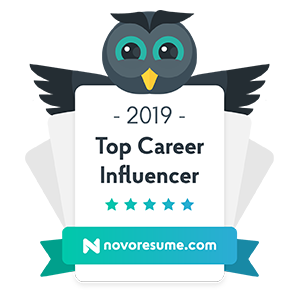Updated: January 2021
Recruiters hold the key to the hidden job market, yet they are highly under-utilized by most job searchers. If you understand recruiters and how they work, you can create precious opportunities to get your resume in front of the right people at the right time. In this blog post, I’ll share all the secrets about recruiters so you can get inside recruiters’ heads and tips for increasing your chances of having recruiters respond to you.
“I’m a recruiter.”
Try dropping these three words at a cocktail party and you’re guaranteed at least one response—if not several—of, “I hate recruiters.” Needless to say, I knew I had hit a career high point to merit that kind of reaction. (Hey, at least I didn’t have to explain what I did for a living!)
It’s true, headhunting may not win any popularity contest, but I learned so much about how the process actually works. In fact, I decided to embrace the harsh truths I uncovered and share them with job seekers. So, take a page from the other team’s playbook: Here’s what everyone needs to know when it comes to applying for jobs.
1. Your Resume’s Pretty Boring
Let’s be honest: Resumes are quite possibly the driest reading material in the world. Now, imagine opening your inbox every day to hundreds of these documents. No amount of glitz or glamour is going to turn a resume into a page-turner.
EXPERT TIP
When dealing with recruiters don’t spend hours debating the perfect color or font. Instead, make sure you’re standing out for the right reasons, by making it relevant and easy to skim.
2. Your Resume Won’t Be Read in Full
I’ll be the first to admit that I never read a candidate’s resume word for word. It’s impossible in a profession where time is of the essence. Instead, recruiters are notorious for skimming your resume from top to bottom. Here’s what you need to know about catching the recruiter’s eye on your resume.
EXPERT TIP
Only serve up your most relevant information and ax anything you’re throwing in just to even out the bullet display. Oh, for anyone considering more than a two-page resume—this is exactly why it’s not worth it.
3. Recruiters Don’t Want to Read Your Cover Letter
You know that hiring managers generally want you to demonstrate your talents, qualifications, and writing skills in a cover letter. But recruiters are all about that resume. (Confession: I rarely read cover letters in full.)
EXPERT TIP
Opt for an email intro instead. No need to attach a cover letter (because it won’t be read). NOTE: A cover letter is still a critical application tool when working with non-recruiters (ie. online job applications, email to the hiring manager, or opportunities where your resume will be handed to HR in person). For these occasions, use this type of cover letter approach instead.
4. However, They’ll Notice a Bad One
Yes, I just said we don’t want to read cover letters (and therefore mostly skim). But we’ll notice if you send a generic one addressed to “To Whom it May Concern.”
EXPERT TIP
Take the time to tailor your professional branding documents and communications. Even if it’s not being read by the majority of recruiters, it doesn’t mean it won’t be seen. In that chance that a recruiter does open your cover letter attachment, the person skimming it wants to see that you put effort into it.
Download Noelle’s Executive Recruiter Networking Strategy Pack & Access the Top 300+ Global Recruiting Firms!
5. Like You, We’re Busy
Unfortunately, it’s impossible for us to get back to every single person who asks for help. Especially if you’re asking a question that’s not in our wheelhouse or involves a lot of research on our end, such as “What open positions in your company should I apply to?”
EXPERT TIP
Make sure you’re not only reaching out to the right person but also that you’re asking concise questions that are easy for us to answer fast.
6. You Should Be Able to (Succinctly) Sum Up Your Qualifications
So many candidates confuse “Tell me about yourself” with an opportunity to run through their resume bullet point by bullet point. We’re only human and we’ll eventually lose interest and miss out on your most impressive points. Not sure how to answer the “Tell me about yourself” question? You might want to work with an interview coach to learn exactly how to create the most compelling answer for communicating your great experience.
EXPERT TIP
Instead, spend time working on your elevator pitch. Make sure to point out the highlights, transitions, number of direct reports, ROI, organizational contributions, and responsibilities that are relevant to the position you want.
7. Recruiters Know Your Real Age
Heck, we can piece together a lot more than that with a resume and some basic research.
EXPERT TIP
Don’t leave dates off your resume or try to make it sound like you have way more experience than you do.
8. We Get to the Bottom of Everything
Fleshing out the good, the bad, and the ugly is a recruiter’s job—and the seasoned recruiter can smell something funny a mile away.
EXPERT TIP
You’re best bet is to be honest when it comes to salary history, employment gaps, and any hidden details that may come out later. We’re on your side and wants to see you succeed—so being honest will only help us help you.
9. A Call Doesn’t (Necessarily) Mean It’s an Official Interview
Sometimes a phone conversation is necessary to make sense of someone on paper before we bring him or her in to speak to the team.
EXPERT TIP
This is where your short, sweet, and concise elevator pitch comes in handy again. Know your value, know your worth, and be prepared to win someone over in a short amount of time. Oh, and if you’re not super-comfortable on the phone, brush up on your skills.
11. We Laugh at Inappropriate LinkedIn Photos
When you spend every day scanning LinkedIn profiles you can bet you come across some interesting pictures. It’s not that recruiters are malicious—but we are human!
EXPERT TIP
Avoid being too serious (this is not a mugshot), ditch the multi-person photo, and go with something professional. If you’re looking for more help with your Linkedin profile picture, try this for starters.
12. We Don’t Want You to Call Us
You’re eager to hear if the recruiter is interested—and that’s OK, we’ve all been there. But remember, if we want to interview you, we’ll get in touch.
EXPERT TIP
You won’t change our mind by picking up the phone. So don’t call anyway and risk annoying someone on the brink of bringing you in. If you absolutely must follow up on any part of the process, use email. Pinging a recruiter in one of these Linkedin groups is also a great way to get in touch.
13. We’re Not Heartless
All of these insider secrets may make you want to swear off recruiters altogether—after all, if I read this, I’d feel pretty disheartened, too. But before you do that, keep this final lesson in mind.
EXPERT TIP
Right or wrong, responsive or not, recruiters play an important role in helping find the right candidates for the companies they serve. While you don’t have to take what I’m saying as gospel, take it into consideration as you’re looking for a new job—especially if you are having trouble landing interviews.
And remember, these are just tips. You’re a hard worker and (I’ll assume) awesome at your job. So know: that alone will get you far in your job search and in your career.
If you’re hoping to improve your recruiter networking strategy and land a job in record time, check out the Job Search Accelerator. In this budget-friendly job landing community you’ll have access to all of Noelle’s expert resources including a FREE resume review, optimized resume and cover letter templates, networking scripts and templates, LinkedIn optimization courses, interview answer scripts and more – everything you need to feel confident, navigate the job search successfully, and put your best foot forward as an applicant.


 Coping with Job Loss During the Holidays
Coping with Job Loss During the Holidays


